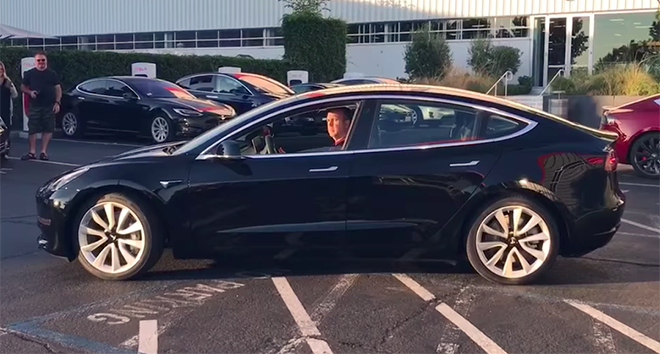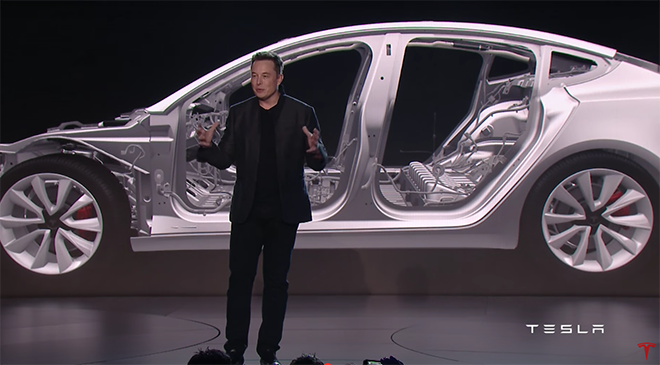Tesla’s Model 3 is finally taking to the roads, and the rave reviews are taking to the internet (most of them based on little more than a short test drive at the launch event). Tesla gave us a good bit of information about the new EV at that event, but it’s revealing some of the technical specs in dribs and drabs.
What are the actual capacities of the battery packs? Model S and Model X use a naming scheme that specifies each variant’s battery capacity: a Model S 75 has a 75 kWh battery pack, a Model S 85 has an 85 kWh pack, and so on. Tesla seems to have abandoned that scheme – perhaps it was thought to be too nerdy-engineer-pocket protector? Whatever the reason, Model 3 currently offers only two battery options: Standard, with 220 miles of range, and Long Range, with 310 miles.

The engineers won’t be put off, however. Fred Lambert over at Electrek found the documents for Model 3’s EPA certification, and used that info to try to calculate pack capacities. The Long Range pack has a total voltage of 350 volts and a capacity of 230 Ah, which translates to 80.5 kWh. (Another interesting tidbit from the EPA filing: Model 3 uses a 3-phase permanent magnet motor, as opposed to the induction motor used in Models S and X.)
However, Tesla soon clarified that Lambert’s calculations don’t represent actual pack capacity. During a conference call for bondholders, Elon Musk explained that the Standard pack has a capacity of “just over 50 kWh,” while the Long Range pack has “about 75 kWh.”
This is important information, and not only for engineers with a need for numbers. It offers a clue to the cost of Tesla’s battery packs, which directly affect the company’s gross margins, and its position vis a vis competitors (should any appear).
For example, at $150 per kWh, the Model 3 battery pack cost would be $7,500 for the Standard and $11,250 for the Long Range.
Like any automaker, Tesla refuses to disclose its exact battery costs, but it has offered hints. The company previously said that its pack cost was “below $190 per kWh,” and that it expects the Gigafactory to reduce that by 35%. Musk has also said that he will be “disappointed” if the company can’t bring the cost below $100 per kWh by 2020.
Source: Electrek



















































